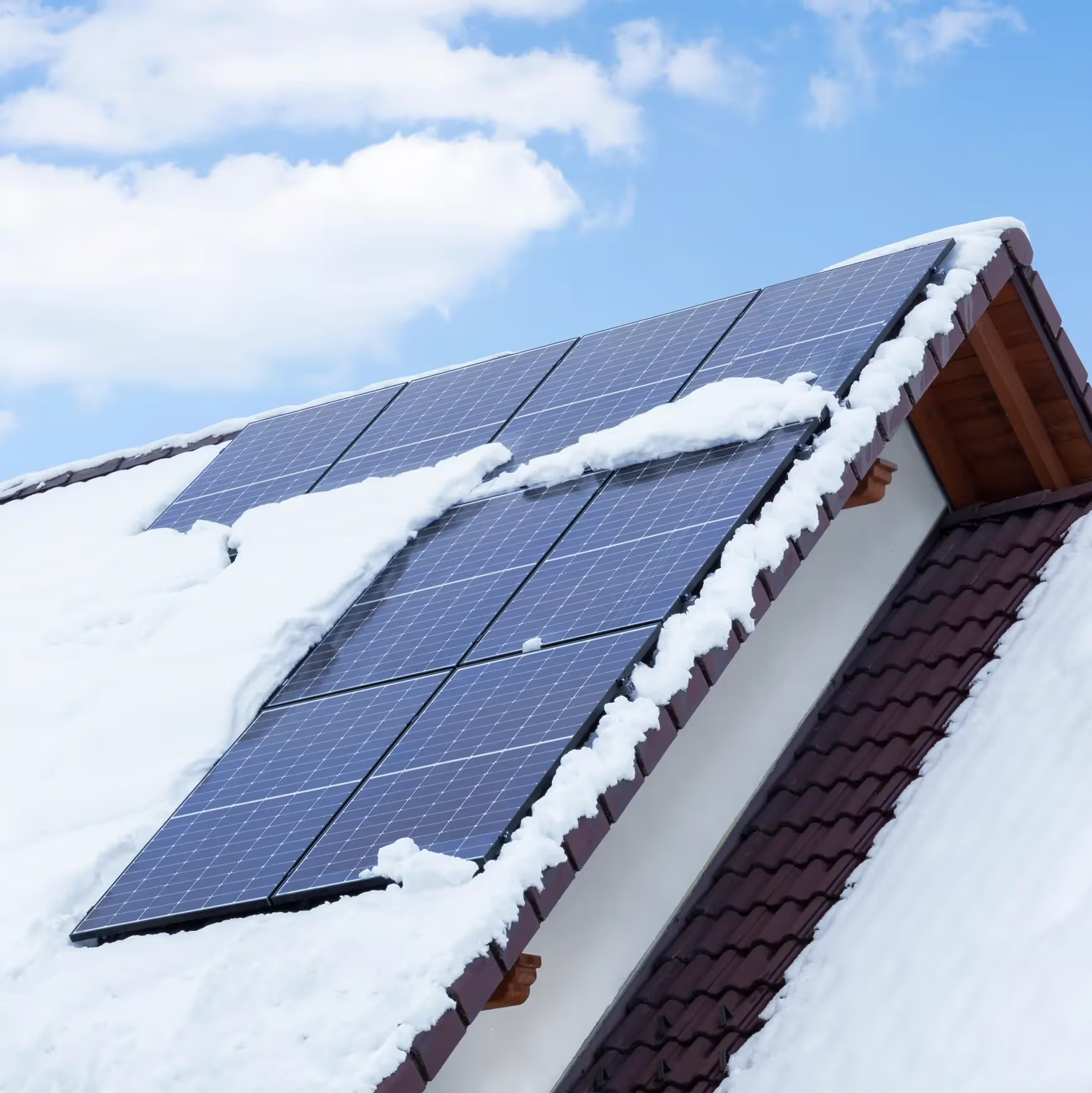Do Solar Panels Work in Winter? Unveiling the Truth

Thinking about solar?
Curious what solar panels could save you? Get a quick estimate based on your home, and see if solar makes sense for you.
When the temperature outside drops, many homeowners wonder: Do solar panels still work in the winter? The short answer is yes—they absolutely do. You might be surprised to learn that solar panels can actually be quite efficient during the colder months. Let's dive into how solar panels perform in the winter, and what you can do to maximise their efficiency.
Solar in the winter
One of the biggest misconceptions out there is that solar panels need warm and sunny weather in order to generate electricity. However, solar panels rely solely on sunlight, not on heat, to produce energy. The photovoltaic (PV) cells in the solar panels convert sunlight into electricity, so as long as there is some daylight, your panels can generate power—even on cloudy days.
Believe it or not, solar panels can often perform better in cooler temperatures. Like most electronic devices, excessive heat can reduce the efficiency of solar panels, so on very hot summer days the panels may be less efficient. Cold weather helps reduce resistance in the electrical circuits, allowing panels to operate more efficiently. Those crisp winter days with clear skies can be ideal for solar energy production. Read our article on the efficiency of solar panels if you want to learn more.
While a light dusting of snow isn't likely to affect your solar panels significantly, a heavy snowfall can cover the panels with snow and block out the sunlight. Here's what you need to know:
It's true that the days are shorter in winter, which means fewer hours of sunlight. This can lead to a reduction in the total energy your solar panels produce each day. Planning your energy usage accordingly and incorporating energy storage solutions like solar batteries can help manage this seasonal fluctuation.
How does this impact you?
Countries with harsh winters, like Germany and Canada, are among the leading adopters of solar energy. For instance, Germany is known for its cloudy weather yet remains a top solar producer. Similarly, in parts of Alaska, solar panels provide reliable power despite extreme cold and limited daylight hours during winter.
By continuing to use solar energy throughout the winter, you're not only powering your home with free energy but also contributing to a reduction in greenhouse gas emissions. Solar power is a clean, renewable energy source that lessens your dependence on fossil fuels, even when the weather outside is cold and miserable. Our clickable tool will give you an indication of the price for insallation and the savings you could make on your bills.
Conclusion
Book a call with one of our experts and discuss solar installation and how it can benefit you.


